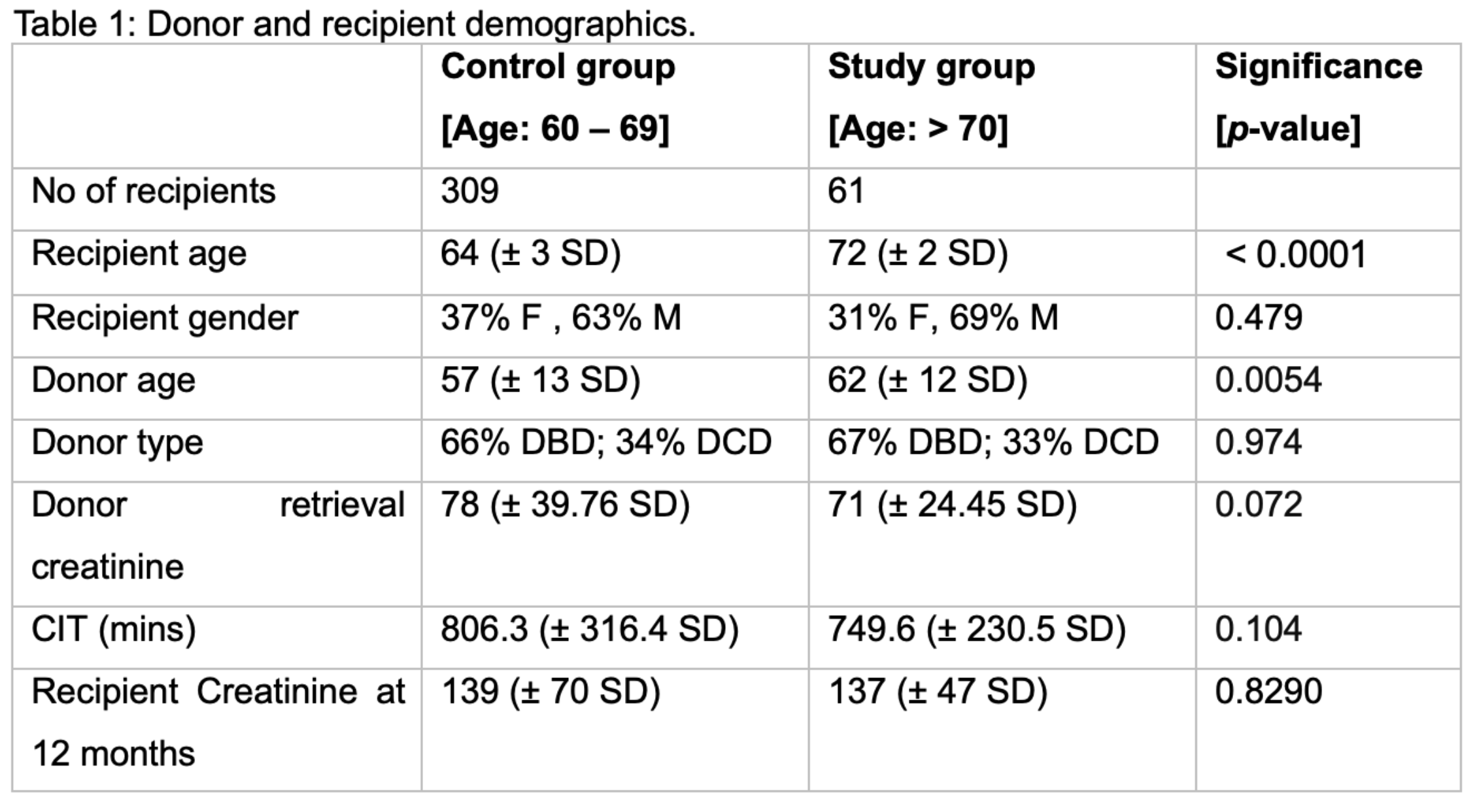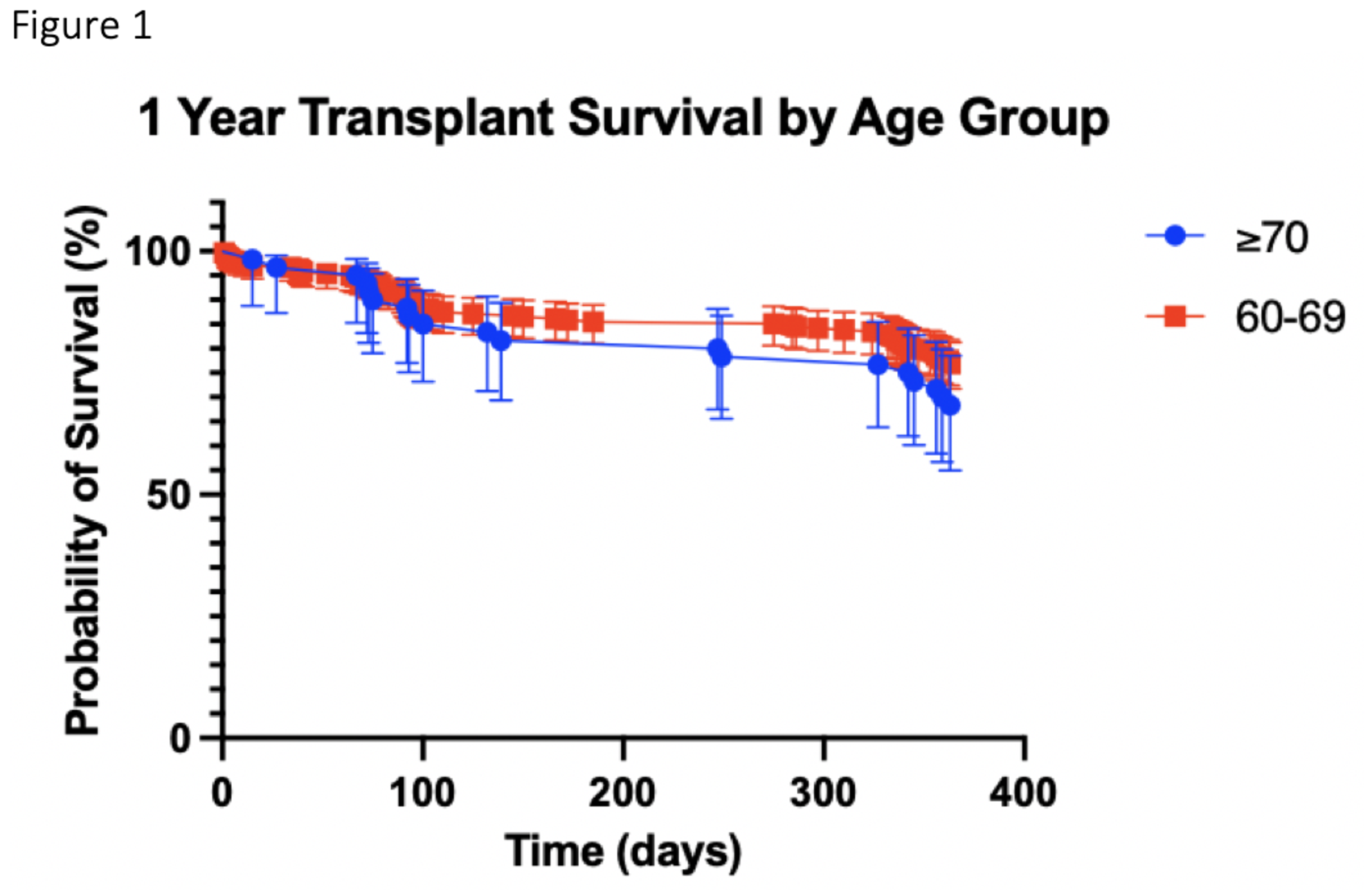Assessing the outcome of deceased donor transplantation in recipients aged 70 and above: Are renal transplants a viable option for the ageing population?
Ammatul Takaza2, Hawazen Almshhad1, Abbas Ghazanfar1.
1Renal Transplant, St. George's Hospital, London, United Kingdom; 2Queen Elizabeth Hospital, Birmingham, United Kingdom
Background: Within the UK, renal replacement therapy has seen the greatest increase in the over-75 age group, these patients constitute 25% of the recent dialysis recipients. The purpose of this study is to compare the safety and outcome of renal transplantation in patients over the age of 70 to determine the impact of age on the success of transplantation.
Methods: We retrospectively analysed data from St Georges University Hospital NHSFT transplant activity from 2001 to 2019. Outcomes of recipients 70 years of age and over [study group] were studied and compared with recipients aged 60 to 69 years [control group]. Analysis of the basic demographics, creatinine at 1 year, graft and patient survival at 1 year [Table 1] were carried out.


Results: There was no statistically significant difference in transplant survival time for the ≥70 age group in comparison to the 60-69 group (p = 0.191) [Figure 1]
Conclusion: As the population ages, there is a growing necessity to balance the demand for renal transplantation with its feasibility for older patients. The present study demonstrates satisfactory outcomes of renal transplantation in recipients aged 70 and above. Our study indicates that this is a viable use of a national resource and renal transplants in all suitable patients over 70 should be considered a gold standard treatment for end stage renal disease.
[1] renal transplant
[2] ageing population
[3] deceased donor transplant
[4] graft survival
[5] creatinine
